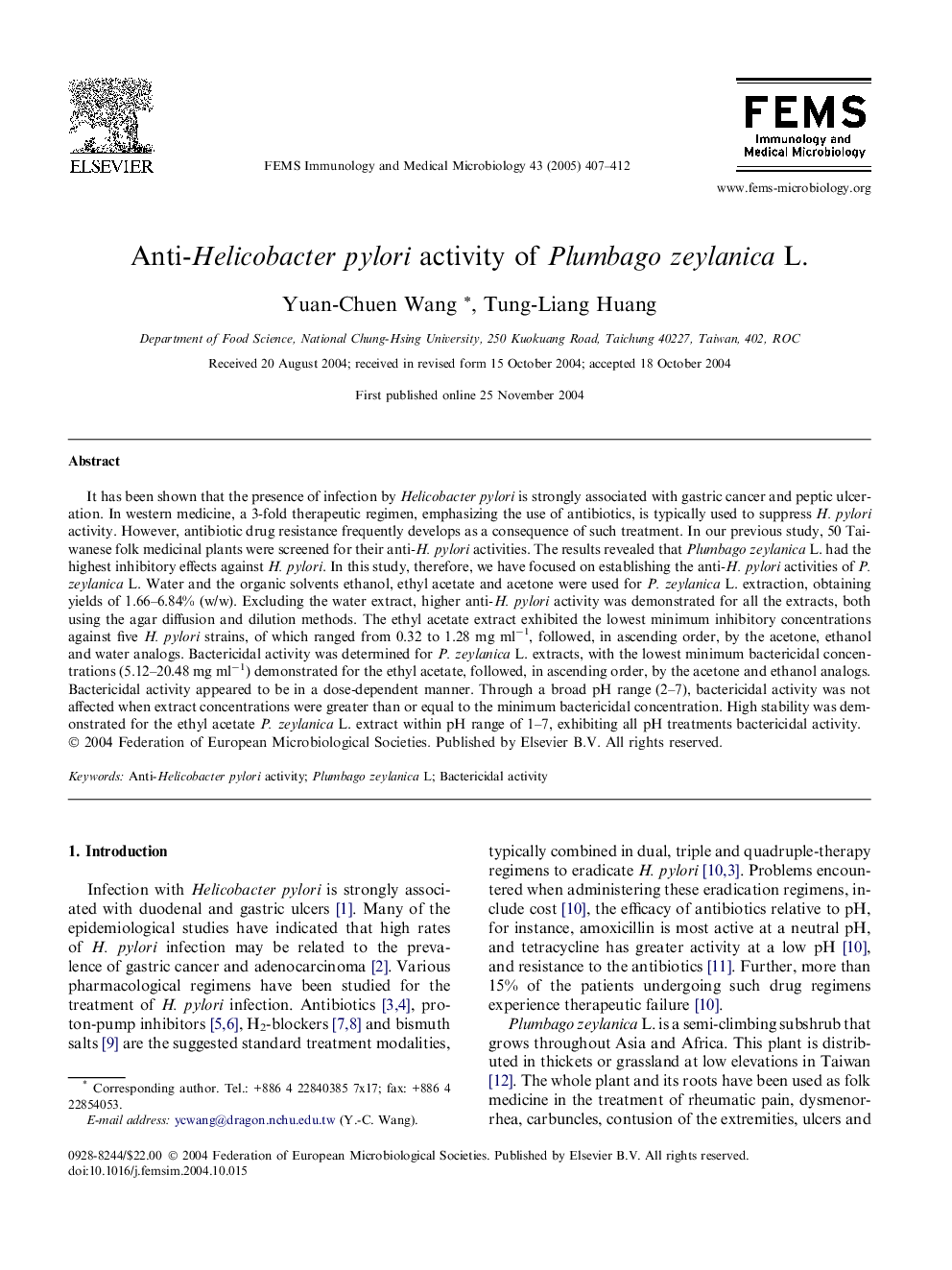| Article ID | Journal | Published Year | Pages | File Type |
|---|---|---|---|---|
| 9278037 | FEMS Immunology and Medical Microbiology | 2005 | 6 Pages |
Abstract
It has been shown that the presence of infection by Helicobacter pylori is strongly associated with gastric cancer and peptic ulceration. In western medicine, a 3-fold therapeutic regimen, emphasizing the use of antibiotics, is typically used to suppress H. pylori activity. However, antibiotic drug resistance frequently develops as a consequence of such treatment. In our previous study, 50 Taiwanese folk medicinal plants were screened for their anti-H. pylori activities. The results revealed that Plumbago zeylanica L. had the highest inhibitory effects against H. pylori. In this study, therefore, we have focused on establishing the anti-H. pylori activities of P. zeylanica L. Water and the organic solvents ethanol, ethyl acetate and acetone were used for P. zeylanica L. extraction, obtaining yields of 1.66-6.84% (w/w). Excluding the water extract, higher anti-H. pylori activity was demonstrated for all the extracts, both using the agar diffusion and dilution methods. The ethyl acetate extract exhibited the lowest minimum inhibitory concentrations against five H. pylori strains, of which ranged from 0.32 to 1.28 mg mlâ1, followed, in ascending order, by the acetone, ethanol and water analogs. Bactericidal activity was determined for P. zeylanica L. extracts, with the lowest minimum bactericidal concentrations (5.12-20.48 mg mlâ1) demonstrated for the ethyl acetate, followed, in ascending order, by the acetone and ethanol analogs. Bactericidal activity appeared to be in a dose-dependent manner. Through a broad pH range (2-7), bactericidal activity was not affected when extract concentrations were greater than or equal to the minimum bactericidal concentration. High stability was demonstrated for the ethyl acetate P. zeylanica L. extract within pH range of 1-7, exhibiting all pH treatments bactericidal activity.
Related Topics
Life Sciences
Immunology and Microbiology
Immunology
Authors
Yuan-Chuen Wang, Tung-Liang Huang,
